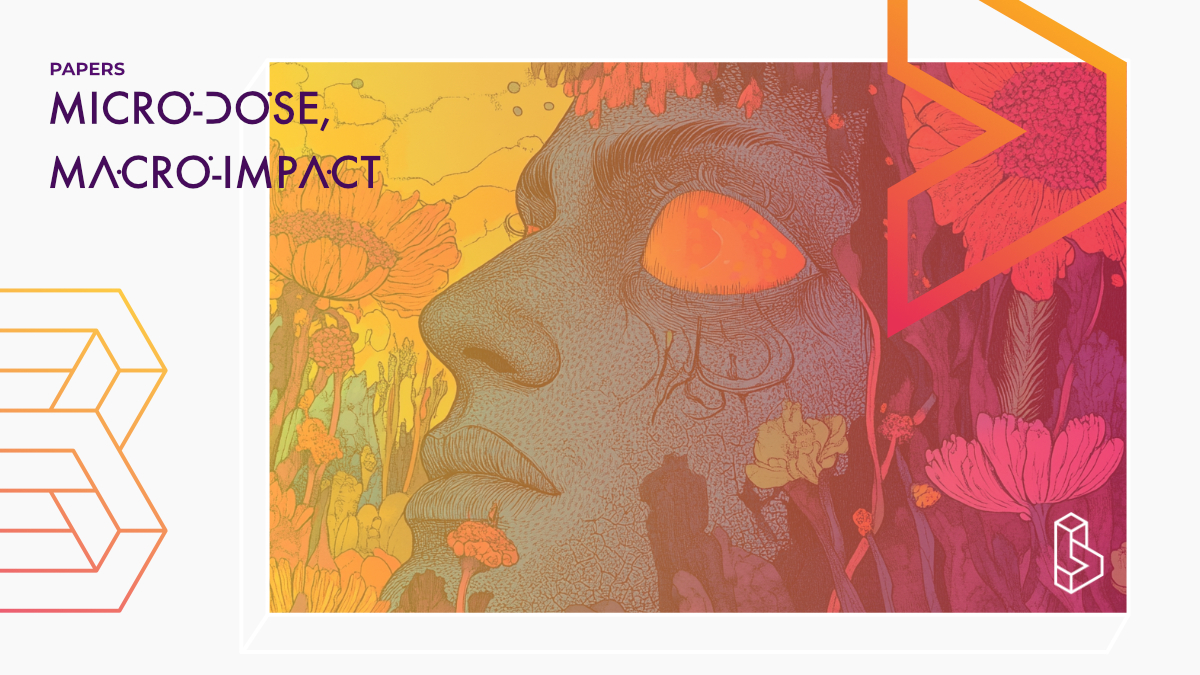This open-label at-home study (n=25) of ketamine tablets (37.5mg) finds that repeated ‘micro’ doses led to improvements in anxiety, stress, PTSD, and depression in 90-100% of participants.
Abstract of Micro-dose, macro-impact
“Background and aims The COVID-19 pandemic exacerbated pre-existing high levels of physician stress and burnout. In order to help treat frontline colleagues who were diagnosed with acute stress disorder, we chose a non-psychedelic, ketamine micro-dose treatment strategy for symptom management.
Methods We provided care virtually, and all patients were prescribed sublingual ketamine once daily. Each patient was evaluated using the NIH-PROMIS CAT assessments for stress, depression, anxiety, and PTSD via a remote, HIPAA compliant patient self-reporting platform. Progress was tracked and assessed against a baseline value obtained prior to the start of treatment. Patient progress was evaluated at a 4–6-week interval. Patients did not report any significant side effects to the treatment regimen.
Results 100% (25/25) of patients experienced improved anxiety, 92% (23/25) experienced improved stress, 96% (24/25) experienced improved PTSD, and 91% (20/22) experienced improved depression.
Conclusions While we cannot draw definitive conclusions from the association demonstrated by this data, we believe these results demonstrate that further research into the efficacy of daily, short-term ketamine micro-doses for treatment of acute stress disorder is warranted.”
Authors: Andre Atoian, Harry Bowles, Sarah Gerhke, Suzy Atoian, Nigel Bowles & Duraiyah Thangathurai
Summary of Micro-dose, macro-impact
Atoian and colleagues begin by discussing how the COVID-19 pandemic exacerbated pre-existing high levels of physician stress and burnout, which threatened the safety and performance of frontline healthcare workers. To address this issue, the researchers created a protocol based on their experience as a ketamine clinic to treat healthcare workers diagnosed with acute stress disorder.
The authors note that ketamine is currently the only FDA-approved drug with psychedelic properties. Since 2006, a large body of literature has been published on the efficacy of ketamine for off-label treatment of mood disorders using dissociative, psychedelic “macro-dose” protocols. However, for this study, the researchers chose a non-psychedelic, micro-dose treatment strategy as an alternative to existing ketamine treatment approaches.
Atoian and colleagues explain that their study received institutional review board approval for a retrospective chart review to assess the efficacy of their intervention. They emphasise that this retrospective study is an open-label, proof-of-concept trial, neither structured nor powered to reach a definitive conclusion, but rather intended to determine if this clinical strategy deserves further study.
Methods
Find this paper
https://doi.org/10.1556/2054.2022.00227
Open Access | Google Scholar | Backup | 🕊
Cite this paper (APA)
Atoian, A., Bowles, H., Gerhke, S., Atoian, S., Bowles, N., & Thangathurai, D. (2023). Micro-dose, macro-impact: Leveraging psychedelics in frontline healthcare workers during the COVID-19 pandemic. Journal of Psychedelic Studies, 6(3), 188-190.
Study details
Compounds studied
Ketamine
Topics studied
Microdosing
Depression
Anxiety
Study characteristics
Open-Label
Participants
25
Humans

